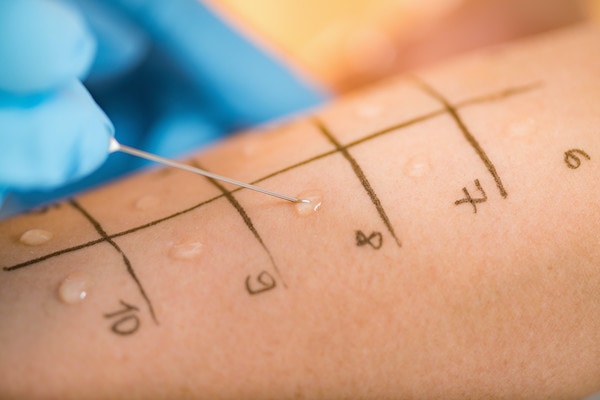USDA MLG Allergen Gluten Detection in Grains and Flours
The USDA's Multi-Laboratory GLuten (MLG) program is designed to ensure the accuracy, consistency, and reliability of gluten testing across various grains and flours. This service plays a pivotal role in safeguarding public health by identifying potential allergens and ensuring compliance with labeling regulations.
The MLG program involves a network of USDA-accredited laboratories that conduct rigorous tests on samples from different grain types such as wheat, barley, rye, spelt, kamut, and others. The focus is on detecting gluten proteins which can trigger severe allergic reactions in individuals with celiac disease or non-celiac gluten sensitivity.
The testing process typically begins with the collection of raw materials, including grains and flours, from multiple sources to ensure a comprehensive analysis. Samples are then prepared according to strict protocols before being analyzed using advanced analytical techniques such as enzyme-linked immunosorbent assays (ELISAs) or mass spectrometry.
Results from these tests provide critical information about the presence of gluten in specified levels, enabling manufacturers to accurately label their products. Compliance with regulations like those outlined in 21 CFR Part 101 and international standards such as ISO/TS 21765 further emphasizes the importance of this service.
The outcomes of these tests are essential for maintaining consumer trust and safety, especially for people who depend on accurate labeling to avoid accidental consumption. By adhering strictly to established methods and best practices, laboratories participating in the MLG program contribute significantly towards enhancing food safety standards globally.
Accurate gluten detection is crucial not only for health reasons but also due to legal requirements imposed by government agencies worldwide. For instance, in the United States, strict adherence to FDA guidelines ensures that all packaged goods containing wheat or other grains must declare their presence if they exceed certain thresholds set forth by law.
In summary, USDA MLG allergen gluten detection services are indispensable tools for ensuring food safety and regulatory compliance across various sectors including agriculture, manufacturing, retail, and healthcare. They help protect consumers from potential risks associated with consuming products containing undeclared allergens while providing manufacturers with valuable insights into their supply chains.
Why It Matters
The significance of accurate gluten detection cannot be overstated, particularly given its direct impact on public health and safety. Gluten intolerance affects millions worldwide, leading to significant health issues if not properly managed through dietary restrictions.
- Potential Health Risks: Individuals with celiac disease must strictly avoid gluten for lifelong management of their condition. Failure to do so can lead to severe gastrointestinal symptoms and other complications affecting long-term well-being.
- Regulatory Compliance: Government bodies like the FDA enforce strict labeling laws mandating clear indication of allergens on food packaging. Non-compliance can result in hefty fines and damage to brand reputation.
The precision provided by USDA MLG gluten detection ensures that manufacturers adhere to these stringent requirements, thereby fostering trust among consumers and enhancing overall public health standards.
Eurolab Advantages
At Eurolab, we pride ourselves on delivering unparalleled quality assurance in allergen gluten detection through our state-of-the-art facilities and experienced personnel. Our team of experts utilizes cutting-edge technology and follows internationally recognized protocols to deliver reliable results.
- Accurate Results: Leveraging advanced analytical methods, we ensure that every sample analyzed meets the highest standards of accuracy and precision.
- Comprehensive Coverage: Our laboratories specialize in testing various grains and flours used in food production, covering a wide range of allergens including wheat, barley, rye, spelt, and kamut.
- Regulatory Compliance: We stay updated with the latest regulatory changes to ensure our clients remain compliant at all times.
We offer not just robust technical capabilities but also exceptional customer service, making us a preferred choice for quality managers and compliance officers alike. Our commitment to excellence sets Eurolab apart as a leader in this field.
Why Choose This Test
- Precision: Utilizing the most advanced analytical techniques, our tests deliver highly accurate results every time.
- Variety of Tests: We offer a broad spectrum of gluten detection options catering to diverse grain types and processing stages.
- Compliance Assurance: Ensures strict adherence to all relevant regulations, helping maintain consumer trust and satisfaction.
- Expertise: Our team comprises highly skilled professionals who are experts in their respective fields.
- Speedy Turnaround: Timely delivery of results supports faster decision-making processes for our clients.
- Confidentiality: Client data and samples are handled with utmost confidentiality, ensuring peace of mind.





